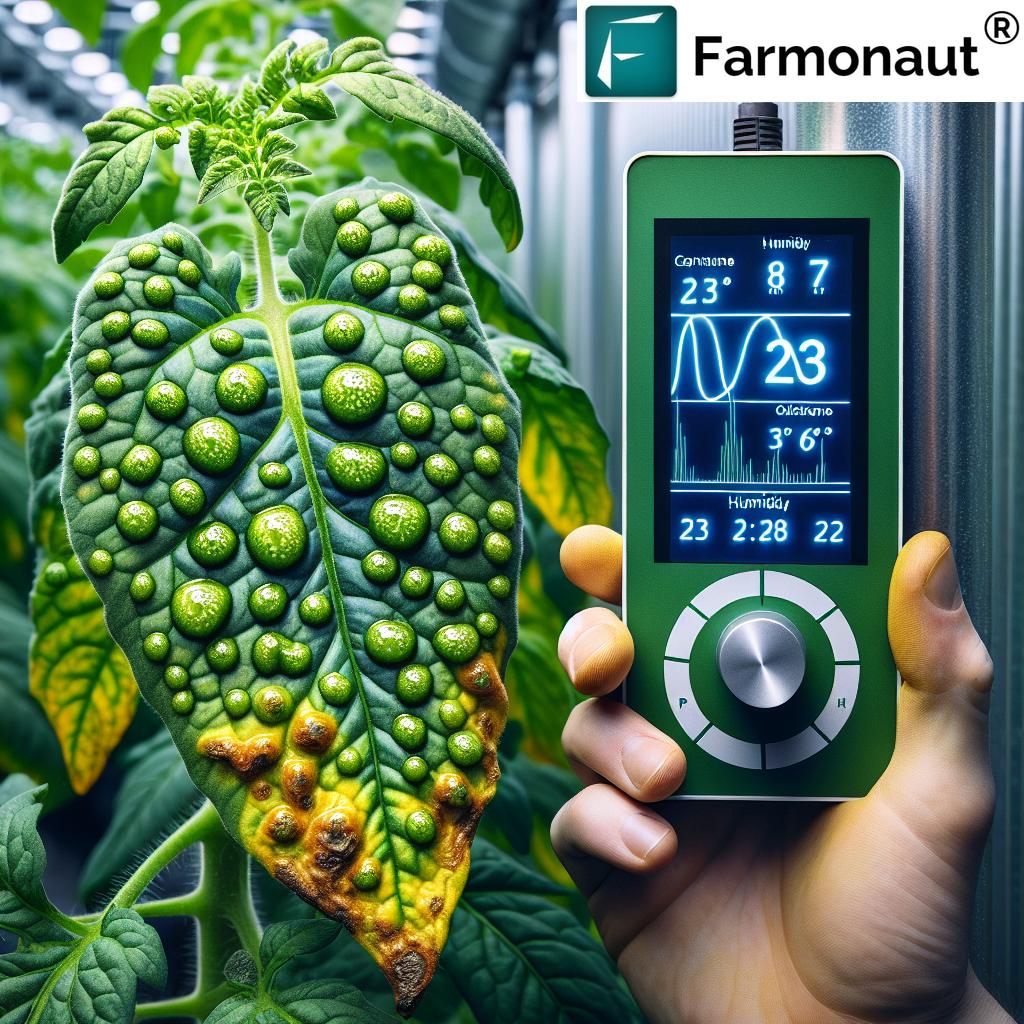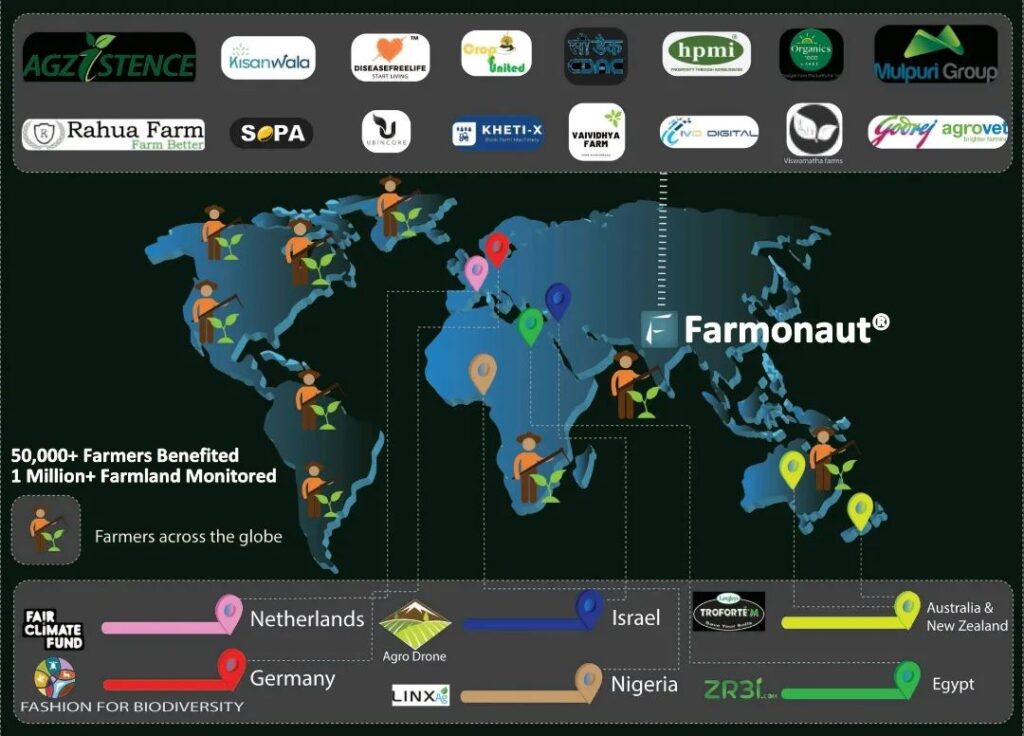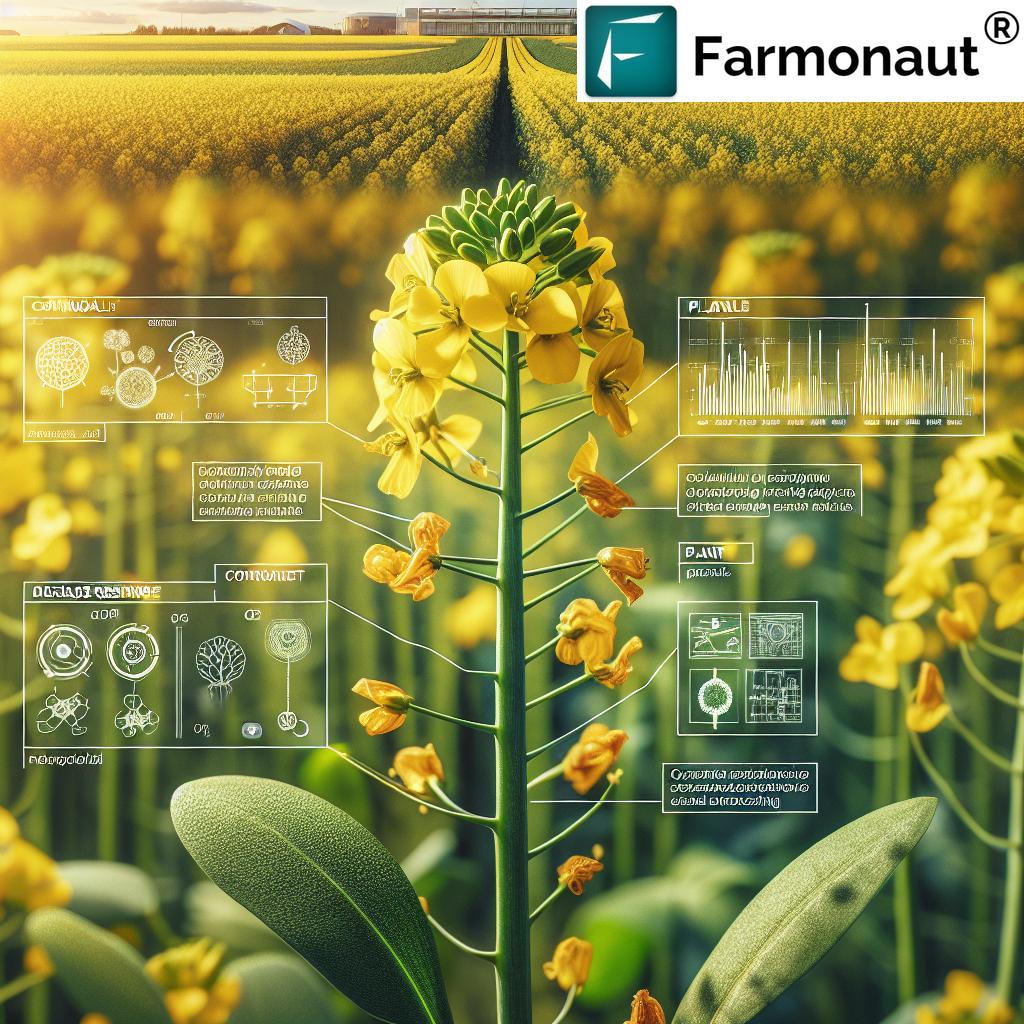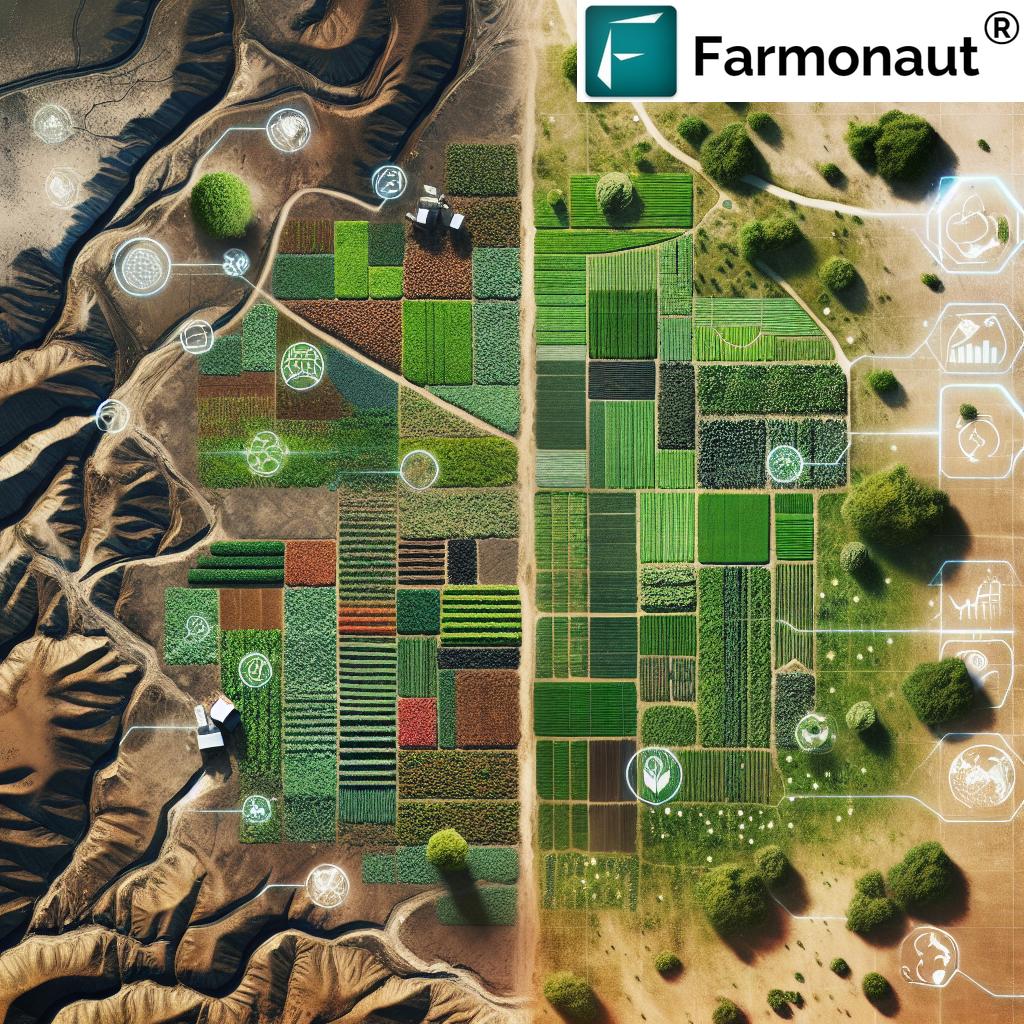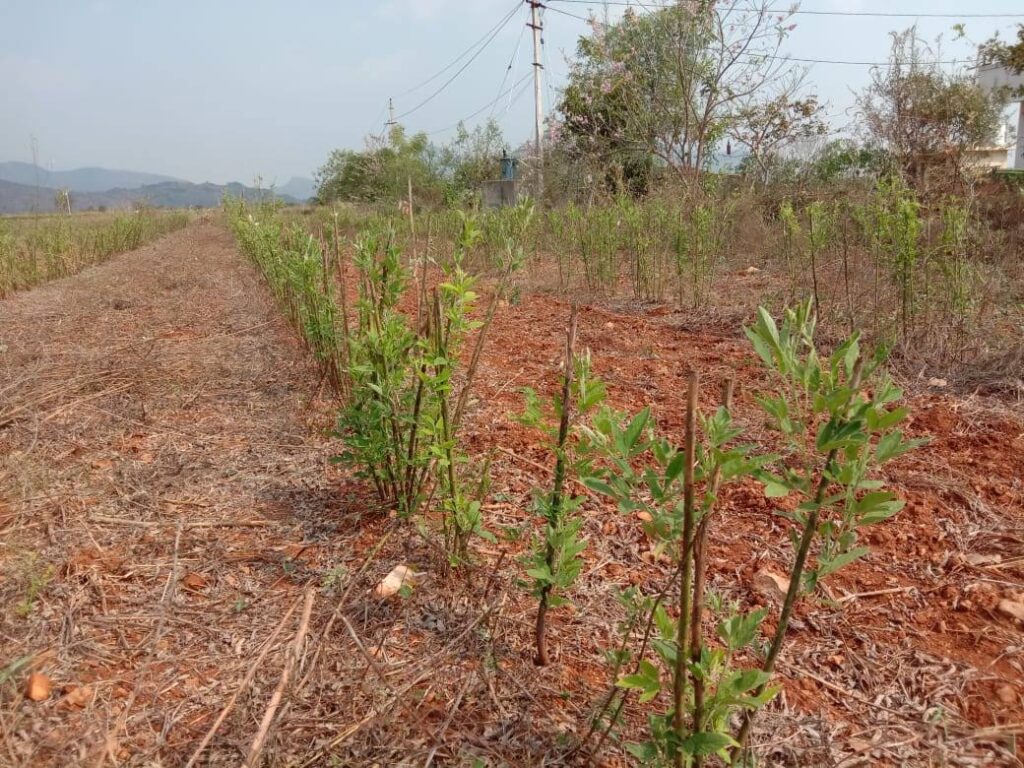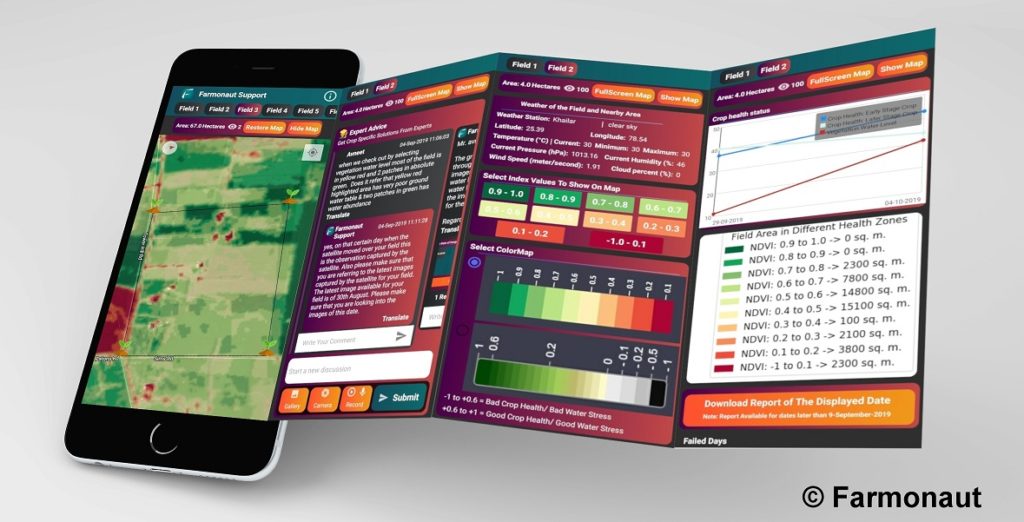Revolutionizing Sustainable Farming: Farmonaut’s Guide to Eco-Friendly Herbicides and Weed Control Solutions

“Bio-based herbicide solvents can reduce volatile organic compound (VOC) emissions by up to 80% compared to traditional formulations.”
Welcome to Farmonaut’s comprehensive guide on revolutionizing sustainable farming through eco-friendly herbicides and weed control solutions. As leaders in agricultural technology, we’re excited to share our insights on the latest innovations in sustainable herbicide formulations and their impact on modern farming practices. In this blog post, we’ll explore how bio-based solvents are transforming weed control in agriculture, paving the way for environmentally friendly crop protection strategies that align with global sustainability goals.
The Evolution of Herbicide Technology
The agricultural industry has long relied on chemical herbicides to manage weeds and protect crop yields. However, traditional herbicide formulations often come with significant environmental concerns, including high volatile organic compound (VOC) emissions and reliance on non-renewable petroleum-based ingredients. As we face increasing pressure to adopt more sustainable practices, the need for innovative, eco-friendly weed control solutions has never been more critical.
Enter the era of sustainable herbicide formulations. These next-generation products leverage bio-based solvents and plant-derived technologies to offer effective weed control while minimizing environmental impact. Let’s delve into the benefits and applications of these groundbreaking solutions.
The Power of Bio-Based Solvents in Agriculture
Bio-based solvents are revolutionizing the way we approach herbicide formulations. These innovative ingredients, derived from renewable plant sources, offer a sustainable alternative to traditional petroleum-based solvents. Here’s why they’re making waves in the agricultural community:
- Reduced VOC Emissions: Bio-based solvents significantly lower volatile organic compound emissions, contributing to better air quality and reduced environmental impact.
- Enhanced Product Absorption: Many plant-based solvents improve the absorption of active ingredients, leading to more effective weed control with less product used.
- Improved Safety Profile: These solvents often have lower toxicity levels, making them safer for farmers, wildlife, and ecosystems.
- Renewable Resource Utilization: By relying on plant-derived ingredients, we reduce our dependence on non-renewable petroleum resources.
Innovative Plant-Based Technologies in Herbicide Formulations
The shift from petroleum-based emulsifiable concentrates to renewable, plant-derived alternatives is at the heart of this agricultural revolution. These innovative formulations are designed to deliver powerful weed control while supporting sustainable farming practices. Let’s explore some key technologies driving this change:
- Bio-Based Emulsifiers: Derived from plant oils, these emulsifiers help create stable herbicide formulations without relying on petroleum products.
- Natural Adjuvants: Plant-based adjuvants enhance herbicide performance by improving spreading, sticking, and penetration properties.
- Eco-Friendly Surfactants: Biodegradable surfactants from renewable sources reduce environmental persistence while maintaining efficacy.
- Green Solvents: Solvents made from agricultural by-products or plant extracts offer sustainable alternatives to traditional petrochemical solvents.
These technologies not only support environmentally friendly weed control but also often result in improved product performance and ease of use for farmers.
Benefits of Eco-Friendly Herbicide Solutions
The adoption of sustainable herbicide formulations offers numerous advantages for farmers, the environment, and global food security. Let’s break down these benefits:
- Environmental Stewardship: Lower VOC emissions and reduced reliance on non-renewable resources contribute to a smaller environmental footprint.
- Enhanced Crop Safety: Many bio-based formulations are gentler on crops, reducing the risk of phytotoxicity and crop damage.
- Improved Worker Safety: Reduced volatile organic compounds and lower toxicity profiles create a safer working environment for agricultural workers.
- Regulatory Compliance: As environmental regulations tighten, eco-friendly herbicides help farmers stay ahead of compliance requirements.
- Consumer Demand: Growing consumer preference for sustainably produced food aligns with the use of environmentally friendly crop protection methods.
“Sustainable herbicides using plant-derived alternatives can achieve a 50% reduction in petroleum-based ingredients while maintaining efficacy.”
Comparing Traditional and Bio-Based Herbicide Formulations
To better understand the impact of these innovative solutions, let’s compare traditional herbicides with their bio-based counterparts:
| Characteristics | Traditional Herbicides | Bio-Based Herbicides | Benefits of Bio-Based Solutions |
|---|---|---|---|
| VOC Emissions | High | Reduced by up to 80% | Improved air quality, reduced environmental impact |
| Reliance on Non-Renewable Resources | High | Low | Supports sustainability goals, reduces petroleum dependence |
| Environmental Persistence | Often long-lasting | Generally shorter | Reduced soil and water contamination |
| Absorption Rate | Variable | Often enhanced | Improved efficacy, potential for reduced application rates |
| Application Efficiency | Standard | Often improved | Better coverage, potential for reduced drift |
| Safety for Farmers and Ecosystems | Varies | Generally improved | Reduced health risks, better ecosystem protection |
| Compliance with Environmental Regulations | May face challenges | Often easier to comply | Future-proofing against tightening regulations |
This comparison clearly illustrates the advantages of bio-based herbicide formulations in addressing key environmental and safety concerns while maintaining or even improving efficacy.
Explore Farmonaut’s API for advanced agricultural insights
Implementing Sustainable Weed Control Practices
While innovative herbicide formulations play a crucial role in sustainable farming, they are most effective when integrated into a comprehensive weed management strategy. Here are some best practices for implementing eco-friendly weed control:
- Integrated Weed Management (IWM): Combine chemical, mechanical, and cultural weed control methods for a holistic approach.
- Precision Application: Use advanced technology to target weed-infested areas, reducing overall herbicide use.
- Crop Rotation: Implement diverse crop rotations to disrupt weed life cycles naturally.
- Cover Cropping: Utilize cover crops to suppress weeds and improve soil health.
- Timely Application: Apply herbicides at optimal times for maximum effectiveness and minimal environmental impact.
By combining these practices with sustainable herbicide formulations, farmers can achieve effective weed control while promoting long-term environmental stewardship.
The Role of Technology in Sustainable Weed Management
At Farmonaut, we believe that technology plays a crucial role in advancing sustainable agricultural practices, including weed management. Our satellite-based farm management solutions offer valuable tools for precision agriculture, enabling farmers to make data-driven decisions about herbicide application and weed control strategies.
Some key technological advancements supporting sustainable weed control include:
- Satellite Imagery: High-resolution satellite data helps identify weed-prone areas for targeted treatment.
- AI-Powered Weed Detection: Machine learning algorithms can distinguish between crops and weeds, enabling precise herbicide application.
- Smart Spraying Systems: Advanced sprayers can adjust herbicide application rates in real-time based on weed density and type.
- Remote Sensing: Drones and other remote sensing tools provide detailed field data for optimized weed management strategies.
Access our API Developer Docs for integrating advanced agricultural data into your systems
Challenges and Future Directions
While the benefits of sustainable herbicide formulations are clear, there are still challenges to overcome in their widespread adoption:
- Cost Considerations: Initially, some bio-based formulations may be more expensive than traditional options.
- Performance Consistency: Ensuring consistent efficacy across various environmental conditions and weed species remains an ongoing focus.
- Farmer Education: Promoting awareness and understanding of these new technologies is crucial for their successful implementation.
- Regulatory Frameworks: Developing appropriate regulatory guidelines for bio-based herbicides is an evolving process.
Despite these challenges, the future of sustainable weed control looks promising. Ongoing research and development efforts are focused on:
- Enhancing the performance of bio-based herbicides across a broader spectrum of weed species.
- Developing new plant-derived active ingredients with novel modes of action.
- Improving formulation stability and shelf life of eco-friendly herbicide products.
- Integrating sustainable herbicides with precision agriculture technologies for optimized application.
The Global Impact of Sustainable Weed Control
The shift towards sustainable herbicide formulations and eco-friendly weed control practices has far-reaching implications for global agriculture and environmental conservation:
- Food Security: By maintaining effective weed control while reducing environmental impact, we can support long-term food production sustainability.
- Biodiversity Conservation: Reduced environmental persistence of herbicides helps protect non-target species and ecosystems.
- Climate Change Mitigation: Lower VOC emissions and reduced reliance on petroleum-based products contribute to climate change mitigation efforts.
- Water Quality: Improved formulations and application techniques help reduce herbicide runoff, protecting water resources.
- Soil Health: Sustainable weed management practices often align with soil conservation efforts, promoting overall soil health.
Farmonaut’s Commitment to Sustainable Agriculture
At Farmonaut, we’re dedicated to supporting farmers in their transition to more sustainable agricultural practices. Our satellite-based farm management solutions provide valuable insights that can help optimize herbicide use and implement effective, eco-friendly weed control strategies. By leveraging our technology, farmers can:
- Identify weed-prone areas for targeted herbicide application.
- Monitor crop health to assess the effectiveness of weed control measures.
- Track environmental conditions to optimize herbicide application timing.
- Access expert advice on sustainable weed management practices through our AI advisory system.
While we don’t manufacture or sell herbicides, our goal is to empower farmers with the information and tools they need to make informed decisions about sustainable weed control.
Conclusion: Embracing a Greener Future in Agriculture
The revolution in sustainable herbicide formulations and eco-friendly weed control solutions represents a significant step forward in our journey towards more sustainable agricultural practices. By embracing bio-based solvents, innovative plant-derived technologies, and integrated weed management strategies, we can effectively control weeds while minimizing environmental impact and supporting long-term food security.
As we continue to face global challenges such as climate change and increasing food demand, the importance of sustainable farming practices cannot be overstated. The shift towards eco-friendly herbicides is not just a trend but a necessity for the future of agriculture.
At Farmonaut, we’re committed to supporting this transition by providing cutting-edge technology and data-driven insights to farmers worldwide. Together, we can cultivate a more sustainable and productive agricultural landscape for generations to come.
FAQ: Sustainable Herbicides and Weed Control
Q1: What are bio-based solvents in herbicides?
A: Bio-based solvents are derived from renewable plant sources and serve as alternatives to traditional petroleum-based solvents in herbicide formulations. They help reduce VOC emissions and environmental impact while often improving product performance.
Q2: How do sustainable herbicide formulations benefit farmers?
A: Sustainable herbicides offer several benefits, including reduced environmental impact, improved safety profiles, enhanced product absorption, and better alignment with evolving environmental regulations. They can also contribute to long-term soil health and biodiversity conservation.
Q3: Are eco-friendly herbicides as effective as traditional ones?
A: Many eco-friendly herbicides are designed to be as effective as their traditional counterparts. In some cases, they may even offer improved performance due to enhanced absorption and targeted formulation technologies. However, efficacy can vary depending on specific weed species and environmental conditions.
Q4: How can technology support sustainable weed management?
A: Technologies like satellite imagery, AI-powered weed detection, and precision application systems can optimize herbicide use by enabling targeted treatments, reducing overall chemical use, and improving application efficiency. Farmonaut’s satellite-based farm management solutions provide valuable data to support these practices.
Q5: What role does integrated weed management play in sustainable farming?
A: Integrated weed management combines various control methods, including chemical, mechanical, and cultural practices. This holistic approach reduces reliance on any single method, promotes biodiversity, and helps prevent herbicide resistance while supporting overall farm sustainability.











